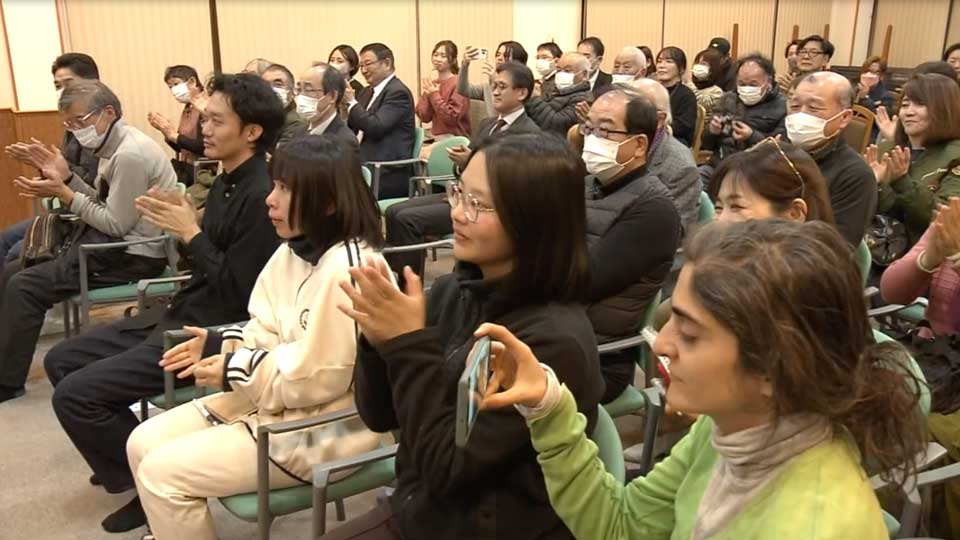Yamada is a master of conveying the human spirit ― something he found in abundance on a recent tour of northeastern Japan.
His trip included a one-hour inspection of the Fukushima Daiichi Nuclear Power Plant, which suffered a triple meltdown in the disaster. The radiation forced tens of thousands of people to abandon their homes and livelihoods.
Yamada had never been to the wrecked facility before, and seeing it up close left a lasting impression.

"Many years have passed. But I'm absolutely against the idea of letting Fukushima fade from people's memories. We must think hard from now on," he said.
The director ascended a nearby scaffolding overlooking the reactor buildings. "The radiation levels are so high that even the workers can't get in," said one official.
Reality 'totally different'
Yamada expressed surprise about how different conditions are just a short distance away.
The director was briefed on the work being done to decommission the crippled plant.
"I was surprised to learn that 4,000 people toil day in, day out here. And that the work will continue for many, many years.
"I've heard a lot of stories, seen a lot of things on TV. But the real thing is totally different."
Yamada also visited a fishing port to see how people are reclaiming their way of life. The seafood industry in Fukushima has been in a slump due to harmful radiation rumors, and catches remain at only about 25 percent of pre-disaster levels.

"I get the feeling everything here is new, including nature," Yamada said as he watched a group of young fishers shoot a video as part of a project to promote their struggling industry.
"They had big smiles on their faces," he said. "But I can't imagine how the disaster must still plague their consciousness."

Art and culture
Yamada took a close interest in a project that's using art and culture to revive the area. It includes the production of films set on Fukushima's famed Hamadori coastline and contemporary art exhibitions.
His trip to the prefecture included delivering a lecture to a group of young film directors and other people from Japan and abroad.
"When people are in despair, you say, 'Hang in there. You still have potential, so be strong.'
"But sometimes, despair can be overwhelming.
"So you tell them a funny story, something to cheer them up a little.
"Try your best to express what it means to be human. And your audience will laugh."

Yamada knows better than most people about the power of art and film. His trip to Fukushima has strengthened his resolve to carry on doing what he still loves most, after all these years.
"It's not easy to fully understand the feelings of people who have lost their homes, or were suddenly told to flee," he said.
"But we must convey these things over and over. In novels, plays, films, dramas and more. They need to be heard. And I hope I can help."


